Reviews
Madeo
Bong Joon-ho
South Korea, 2009
Credits
Review by Cullen Gallagher
Posted on 09 October 2009
Source Magnolia Pictures 35mm Print
Categories The 47th New York Film Festival
Bong Joon-ho’s films have been characterized by bizarre humor (Barking Dogs Don’t Bite) tinged with dark political commentary (Memories of Murder) in the guise of cross-genre experiments (The Host). Bong’s fourth feature, Mother, continues this trend, and while its examination of (in)justice bears certainly similarities to his second movie, Memories of Murder, it is by no means a repetition. As his latest film shows, Bong able to hit all the notes that audiences have come to expect in his movies while still developing his narrative techniques and visual aesthetic.
Mother is a twist on the classic Cornell Woolrich wrong-man scenario (such as The Black Angel or Phantom Lady) in which a woman (usually the incarcerated’s girlfriend or wife) must descend into the underworld in order to prove the man’s innocence and find the real killer. These are incredible stories of female agency in which the detective, femme fatale, and “good girl” roles are combined into one. Bong revises this archetype to reflect a mother’s love for her son that knows no bounds (even incest is hinted at more than once). When town simpleton Do-Joon is arrested on suspicion for murdering a high school girl, Mother springs into action. Quite literally, she chases down the police cruiser, distracting the driver so that he causes a massive accident. From outside the crushed car, she motions to her son through the window, making sure that he is ok even while he is handcuffed. So deft is Bong’s directorial hand that the sequence swiftly moves from shock to chase to crash to pathos within a few brief shots, and it is this speed that accounts for the scene’s unexpected comedy.
As the plot thickens, the humor gets weirder. During the police interrogation, they threaten Do-Joon by placing an apple in his mouth and chopping it in half. (The second time they threaten him with the same action, they don’t even bother to move at all, instead pretending they are too fast for Do-Joon to even see, which only adds to the ridiculousness of the scene.) And then there’s the police examination of the dead girl’s body, which involves a series of perverse graphic matches: her body hanging over the roof of a building with her hair waiving in the breeze is doubled by a plastic bag caught in an antenna; and staring through her legs to examine her head, the police show the same dumbfounded expression as when Do-Joon was drooling in his sleep. Here, as in Memories of Murder, the police-procedural-as-farce is undermined by scathing condemnation and a lack of faith in the justice system. Comedy, for Bong, is less a means of “relief” than of exposing the terrifying absurdity of gestures and actions whose consequences are all too real for the characters.
No one bears the weight of reality like Mother. Kim Hye-Ja brings to the role a feeling of sympathetic determination. Her deadpan expression, which Bong often uses for comic effect, never betrays the severity of her intentions. While searching a suspect’s home for evidence, she is forced to hide in a closet while the suspect and a young girl have sex. Her escape during the post-coital slumber is made all the more treacherous by a floor littered with half-empty bottled beverages (seemingly harmless in other circumstances), threatening to fall and expose her presence. Extreme low angles make the bottles tower over the screen, imbuing them with uncanny power over not only her own life and death, but also that of her son’s. When one does fall, Bong’s close-up of the approaching liquid captures it slowly creeping toward the camera with menacing doom, like some volcanic ooze or even “The Blob.”
If the first half of Mother succeeds in its playful (and at times gruesome yet light-hearted) subversion of genre, the second half does so in its use of this relative freedom to explore the unsavory and uncomfortable revelations that lay dormant in the characters. While Mother may go the route of so many of Woolrich’s “Black Angels,” but the arch of her transformation is stunningly understated considering the character’s psychological and emotional complexity. Her climactic catharsis, full of love and desperation and repressed violence, is less shocking than inevitable, for at that moment we realize, as she does, that she had it in her all the time.
For all of Bong’s motifs both narrative (emasculation, emasculation, emasculation) and aesthetic (such as alternating tight vertical compositions for the city and horizontal ones for the country), what is most impressive is his ability to seamlessly orchestrate so many different modes of expression and still retain the overall feeling of unity. Yet even at the end of the movie - once you think you’ve got Mother pegged and have figured out that the film’s opening sequence was an audacious flash-forward to the film’s climax - Bong still subverts our expectations, finishing with a busload of tourists dancing in the aisles, back-lit by the receding sunset. It’s an equally bold counterpart to the film’s opening, but more importantly it’s a stunningly composed shot from a director who isn’t afraid to risk the previous two hours on an oblique, uninhibited shot. And personally, I think it all pays off.
More The 47th New York Film Festival
-

Sweetgrass
2009 -
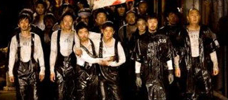
Kanikosen
2009 -
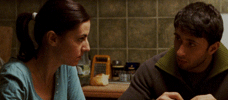
Police, Adjective
2009 -
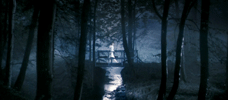
Antichrist
2009 -
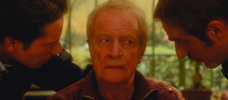
Wild Grass
2009 -

Lebanon
2009 -
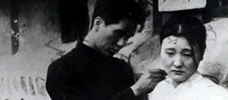
Crossroads of Youth
1934 -
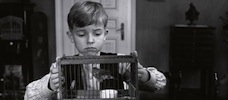
The White Ribbon
2009 -
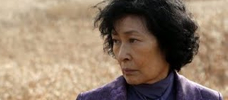
Mother
2009 -
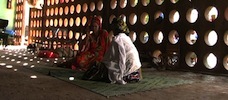
Min Ye
2009 -
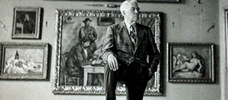
The Art of the Steal
2009 -
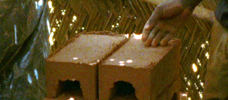
In Comparison
2009
We don’t do comments anymore, but you may contact us here or find us on Twitter or Facebook.



